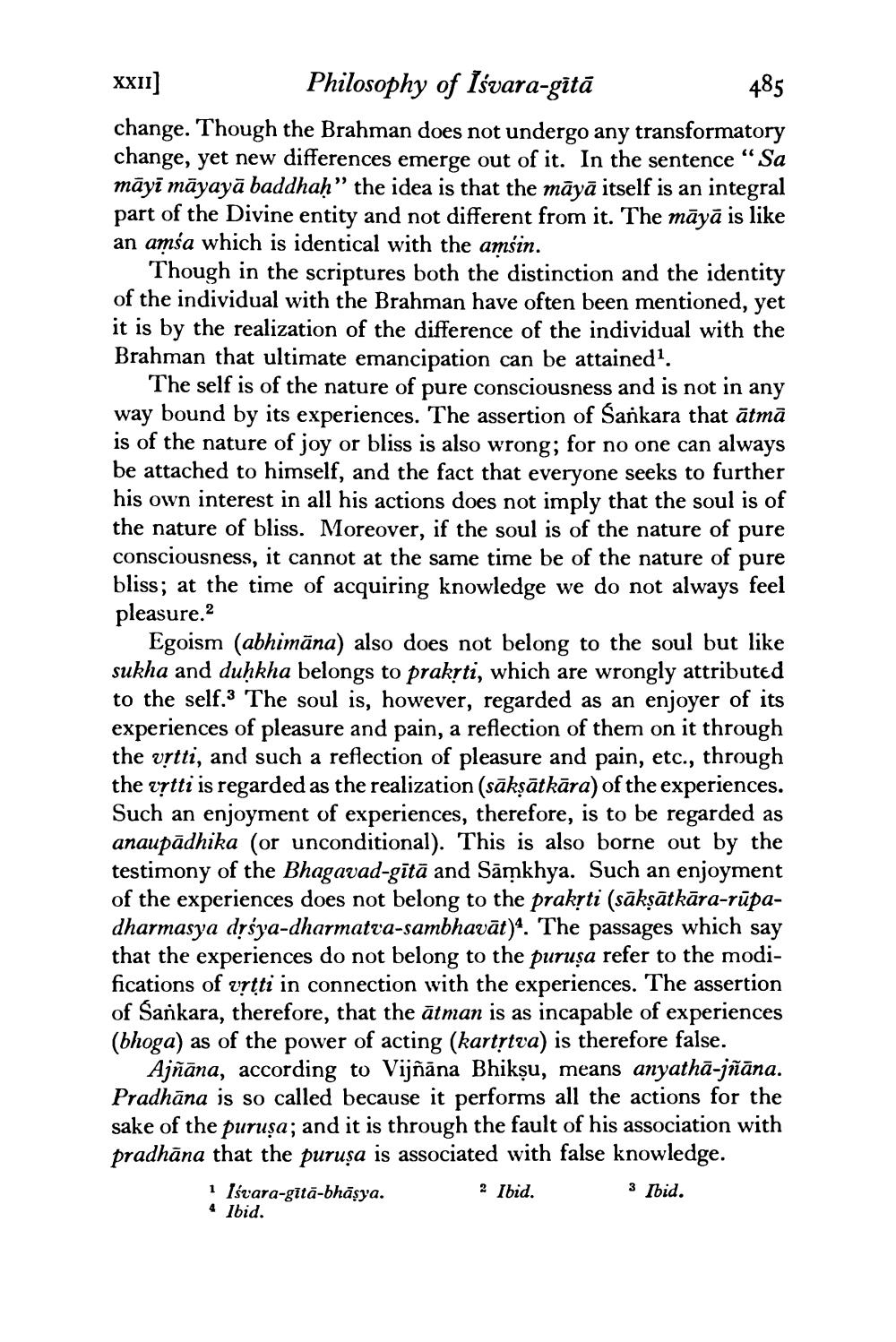________________
485
XXII]
Philosophy of Išvara-gītā change. Though the Brahman does not undergo any transformatory change, yet new differences emerge out of it. In the sentence “Sa māyī māyayā baddhaḥ” the idea is that the māyā itself is an integral part of the Divine entity and not different from it. The māyā is like an amśa which is identical with the amsin.
Though in the scriptures both the distinction and the identity of the individual with the Brahman have often been mentioned, yet it is by the realization of the difference of the individual with the Brahman that ultimate emancipation can be attained.
The self is of the nature of pure consciousness and is not in any way bound by its experiences. The assertion of Sankara that ātmā is of the nature of joy or bliss is also wrong; for no one can always be attached to himself, and the fact that everyone seeks to further his own interest in all his actions does not imply that the soul is of the nature of bliss. Moreover, if the soul is of the nature of pure consciousness, it cannot at the same time be of the nature of pure bliss; at the time of acquiring knowledge we do not always feel pleasure.2
Egoism (abhimāna) also does not belong to the soul but like sukha and duḥkha belongs to prakrti, which are wrongly attributed to the self.3 The soul is, however, regarded as an enjoyer of its experiences of pleasure and pain, a reflection of them on it through the vrtti, and such a reflection of pleasure and pain, etc., through the vștti is regarded as the realization (sākṣātkāra) of the experiences. Such an enjoyment of experiences, therefore, is to be regarded as anaupādhika (or unconditional). This is also borne out by the testimony of the Bhagavad-gītā and Sāmkhya. Such an enjoyment of the experiences does not belong to the prakrti (sākṣātkāra-rūpadharmasya drśya-dharmatva-sambhavāt)4 The passages which say that the experiences do not belong to the puruşa refer to the modifications of vrtti in connection with the experiences. The assertion of Sankara, therefore, that the ātman is as incapable of experiences (bhoga) as of the power of acting (kart;tva) is therefore false.
Ajñāna, according to Vijñāna Bhikṣu, means anyathā-jñāna. Pradhāna is so called because it performs all the actions for the sake of the puruşa; and it is through the fault of his association with pradhāna that the puruṣa is associated with false knowledge. 1 Isvara-gītā-bhāsya.
. Ibid.
3 Ibid.
4 Ibid.




